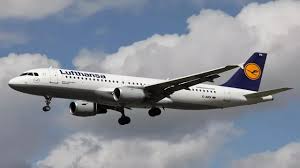Lufthansa Hyderabad-bound flight diverted back to Frankfurt over bomb threat

Frankfurt/Hyderabad, June 16, 2025 – A Lufthansa flight heading to Hyderabad made an emergency return to Frankfurt after a bomb threat triggered a security alert. The flight, LH752, had been in the air for nearly two hours when officials at Hyderabad airport received a threatening email about a possible bomb on board.
Flight Diverted Midway After Email Warning
Lufthansa’s Boeing 787-9 Dreamliner took off from Frankfurt around 2:30 PM local time. It was scheduled to land in Hyderabad late Saturday night. However, at 6:01 PM IST, the airport in Hyderabad received a bomb threat via email.
Although the plane was still flying over international airspace, Hyderabad authorities treated the warning seriously. The bomb threat committee at the airport quickly met and recommended urgent action. After consulting with Lufthansa and German air traffic controllers, they chose to redirect the plane back to Frankfurt.
Aircraft Lands Safely in Frankfurt
The aircraft landed safely in Frankfurt around 5:30 PM local time. Emergency teams were already in place on the ground. Firefighters, bomb squads, and security personnel surrounded the plane as passengers disembarked.
Authorities conducted a detailed search of the aircraft. No suspicious items or explosives were found during the inspection.
Lufthansa provided hotel accommodations for all passengers. The airline also arranged for them to continue their journey to Hyderabad the next day.
“Passenger safety is our top concern,” said a Lufthansa spokesperson. “All necessary precautions were taken in line with global aviation standards.”
Hyderabad Airport Takes Quick Action
Officials at Rajiv Gandhi International Airport confirmed the receipt of the email. The bomb threat committee includes members from CISF, BCAS, and the airport operator. All of them unanimously supported immediate coordination with Lufthansa and German authorities.
“We followed security protocols even though the flight wasn’t in Indian airspace yet,” said a senior official at Hyderabad Airport.
They shared the email details with German officials and recommended returning the plane to Frankfurt instead of letting it reach Indian airspace.
Investigation Into the Threat Underway
Cybercrime teams in both Germany and India have launched an investigation. They are tracing the origin of the email to identify the sender. So far, there is no indication of a larger threat or coordinated attack.
Officials have not confirmed whether the email was a hoax or a serious attempt to disrupt the flight. Investigators are exploring all possibilities, including political motives or personal grievances.
Passengers Describe Their Experience
Many passengers praised the Lufthansa crew for remaining calm and providing updates throughout the incident. One traveler posted on X (formerly Twitter), saying:
“We had no idea what was going on. When the pilot said we were returning to Frankfurt, people got nervous. But the crew handled everything smoothly.”
Some expressed frustration about the delay but appreciated the airline’s quick hotel arrangements and customer support.
The Cost of False Alarms in Aviation
While no bomb was found, this case highlights the challenges airlines face with anonymous threats. Every warning, even if fake, forces officials to take swift and expensive action.
Returning a large international flight, rerouting passengers, and securing an entire airport is no small task. But aviation experts say it’s better to be safe than sorry.
“In these cases, authorities can’t take chances,” said a former aviation safety officer. “Even one false step could cost lives.”
Security and Cybercrime Concerns Rise
The threat came through email, which raises concerns about how easily aviation systems can be targeted online. While sending an anonymous email may seem simple, finding the culprit is difficult. People can use VPNs, fake accounts, and international servers to hide their identity.
Cybersecurity experts suggest that global aviation needs stronger digital defenses. More cooperation between countries can help track down such threats faster.
Passengers Reach Hyderabad the Next Day
Lufthansa later confirmed that passengers boarded a new flight the following morning. The airline apologized for the inconvenience and thanked everyone for their patience.
Indian aviation authorities also released a statement, saying that they are reviewing safety measures and cyber protocols.
Conclusion
The Lufthansa Hyderabad-bound flight returned safely after a bomb threat triggered global security protocols. Even though the threat turned out to be false, the quick decisions made by both German and Indian authorities ensured the safety of everyone onboard. Investigations are still underway, and officials hope to identify the person behind the threat soon.






